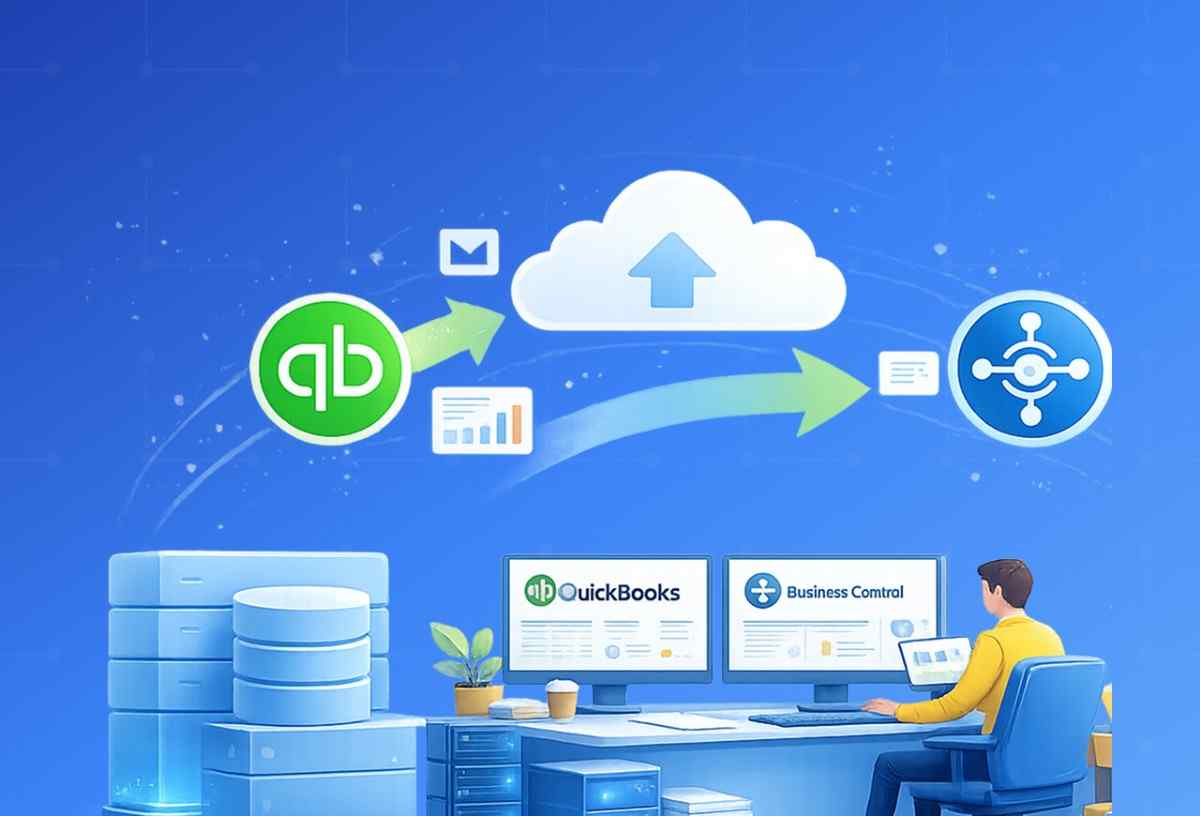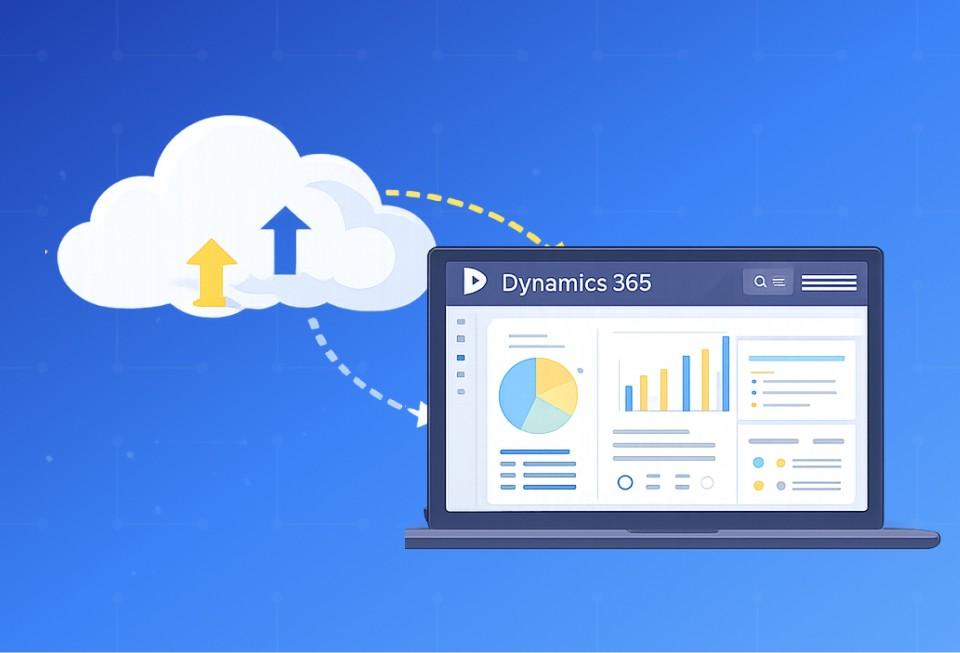Dynamics 365 Education Accelerator [A Complete Guide]
Sep 25, 2023 Aiswarya Madhu
The Dynamics 365 Education Accelerator enables enhanced parent-teacher communication and student engagement in K-12 settings through features like the K-12 Portal, which provides access to schedules, assignments, attendance records, and more.
The accelerator can be customized to meet specific needs and prioritizes data privacy and security, adhering to Microsoft compliance standards.
While the Higher Education and K-12 applications share a common foundation, the K-12 Accelerator emphasizes attendance tracking, behavior management, and skills-based learning, while the Higher Education Accelerator focuses more on student engagement, advising, and alumni management.
To install the Dynamics 365 Education Accelerator, users need a valid Power Apps license with administrator privileges or can opt for a 30-day free trial to test the accelerator's capabilities before deployment.
Universities are treasure troves of information, brimming with data on students, faculty, and staff, alongside extensive records of learning activities, research outputs, and more. This wealth of data holds the promise of transforming educational experiences, guiding strategic decisions, enhancing operational efficiency, and fueling student success. Yet, the critical question remains: are universities fully harnessing the power of their data to achieve these lofty goals?
This is where Dynamics 365 Education Accelerator steps in to bridge the gap between traditional academia and the digital age.
On this page
What is Dynamics 365 Education Accelerator?
The Microsoft Dynamics 365 Education Accelerator is a suite of extensions designed for Microsoft Power Platform applications, aimed at helping educational institutions develop comprehensive data solutions. First released in November 2018, this tool enhances engagement for students and faculty and improves the overall effectiveness of higher education institutions. It includes features tailored to both K-12 and higher education environments.
By leveraging the accelerator's features, educational institutions can quickly develop and deploy solutions that centralize student information, automate administrative tasks, and facilitate seamless communication between students, faculty, and staff.
What is Dynamics 365 Higher Education Accelerator?
The Dynamics 365 Higher Education Accelerator is a specialized tool within the Microsoft Power Platform, aimed at transforming how higher education institutions operate. It offers a set of ready-to-use features and data models specifically designed to manage student information, courses, scholarships, and more.
This accelerator makes it easier for schools to engage with students, streamline administrative tasks, and improve overall institutional performance by providing customizable dashboards and mobile access. Essentially, it's a powerful starting point for universities and colleges to digitize and enhance their operations, ensuring they meet the unique needs of their students and staff efficiently.
Current Challenges in the Education Sector
The absence of a dedicated CRM system in educational settings significantly hampers growth and operational efficiency, as evidenced by a study conducted in New York. This research, which scrutinized over 717 public education datasets, revealed critical gaps in data management and standardization, highlighting the challenges of synthesizing disparate information sources.
The study underscored how current data practices fail to support key educational stakeholders effectively, thereby obstructing informed decision-making and equitable resource distribution.
Managing Duplicate and Redundant Data:In educational settings, duplicate and redundant data records resemble digital paperwork clutter, leading to confusion and administrative errors. This not only breeds confusion but also administrative inaccuracies, such as misplaced examination results or errors in tracking student progression. The consequence? Time and resources are wasted rectifying these errors, impacting productivity and potentially affecting students' academic records.
Optimizing Timetable Management:Efficient timetabling, essential for academic institutions, faces increasing complexity due to demands for flexibility. Traditional scheduling tools often fall short in matching thousands of students with faculty availability, requiring advanced solutions to navigate this logistical puzzle effectively.
Complexities of Admissions and Student Record Management:Managing the enrollment of new students involves multiple departments and prospects, where errors in contact information collection can lead to missed opportunities. Inaccuracies in capturing contact information can lead to prospective students missing out on crucial enrollment information, directly impacting the institution's enrollment rates. For example, an error in email addresses could mean a student never receives their acceptance letter, leading to lost opportunities for both the student and the institution.
Lack of Precision in Financial Reporting:Handling student payments and financial aid involves navigating through various banking platforms, a process that can quickly become chaotic without a centralized system. This chaos can lead to errors in billing, delayed financial aid disbursement, and a lack of transparency in financial transactions, affecting the institution's credibility.
Fragmented Communication & Data Analysis:Nowadays, higher education institutions are navigating the complexities of the student lifecycle with outdated and fragmented systems. Students today anticipate smooth technological interactions, tailored messaging, and transparent value from their education. However, a typical university operates with around 35 different systems to handle processes from recruitment to alumni relations, with some institutions juggling as many as 70 systems. This fragmentation hinders effective data analysis throughout the student journey, often leading to a disjointed and impersonal experience for students due to the segmented nature of the data.
Dynamics 365 Education Accelerator Features
Enhanced Data Integration and VisibilityThe D365 Education Accelerator dramatically transforms data handling within the education sector by offering a unified platform that connects disparate systems. This integration brings together student information from multiple sources, providing a comprehensive view of each student's journey.
For example, a university could leverage this capability to consolidate data from admission processes, academic performance, and extracurricular activities into a single dashboard. This unified view enables educators and administrators to make informed decisions, tailored to each student's unique needs and academic path.
Streamlined Engagement Across StakeholdersEngagement is an important aspect of educational success, and the Education Accelerator facilitates this by enabling more personalized interactions between students, parents, and teachers.
Through its robust communication tools, the platform ensures that important information and updates reach the intended audience efficiently. For instance, a school could use the accelerator to send out personalized course recommendations to students or to keep parents updated on their child's academic progress and school events, thereby fostering a more connected educational community.
Support for Hybrid Learning EnvironmentsIn today's educational landscape, flexibility is key. The Education Accelerator supports teaching and learning in hybrid environments by providing tools that adapt to various learning modalities.
Schools can manage and deliver online and in-person courses, track attendance, and even facilitate extracurricular engagements through a single interface. A practical use case could be a school offering a mix of online and classroom-based courses, using the accelerator to schedule classes, manage enrollments, and provide students with access to learning materials, all in one place.
Empowering Data-Driven DecisionsWith its advanced analytics capabilities, the Education Accelerator turns data into actionable insights. Educational institutions can monitor key performance indicators, such as enrollment rates, student engagement levels, and graduation outcomes, to identify trends and areas for improvement.
For example, a university could analyze data on student engagement in certain courses or programs to identify which are most impactful, guiding resource allocation and curriculum development based on data-driven evidence.
Facilitating Comprehensive Program and Resource ManagementThe accelerator enhances the management of academic programs, scholarships, internships, and grants by centralizing information and processes. Educational bodies can efficiently track and manage applications, distribute funds, and monitor program success from a single platform.
For instance, a college could streamline its scholarship application process, from submission to awarding, ensuring that funds are allocated efficiently and transparently to deserving students.
Want to automate and integrate academic and administrative functions?
How the Education Accelerator Works: An Example Journey
The Microsoft Dynamics 365 Higher Education Accelerator has a lot of features, but you might wonder how it all comes together to help your school or university. If you're curious about what this tool can do for you, we've got a walkthrough that shows it in action.
From when a student first looks into joining your institution, all the way to when they graduate and beyond, here’s a straightforward example of how the Education Accelerator makes things smoother for everyone involved.
Phase 1: Enrollment and Onboarding
Student Perspective:A prospective student visits the integrated student portal to apply for admission. They fill out their application, upload necessary documents, and submit their application for a chosen program.
Administrator Perspective:The admissions team receives the application through the Dynamics 365 platform. They review the submission, process the application, and communicate acceptance through the platform. Once accepted, the student is guided through an onboarding process, which includes course registration for the upcoming semester.
Phase 2: Academic Journey
Student Perspective:Throughout their academic career, the student uses the portal to register for courses, access educational content, submit assignments, and track their progress toward degree completion. They utilize tele-advising features to schedule meetings with their advisor, receiving personalized guidance and support.
Educator and Advisor Perspective:Educators update course materials and assignments on the platform, monitor student submissions, and provide feedback. Advisors access the advisor dashboard to prepare for advising sessions, review student progress, and offer targeted advice based on insights from the platform.
Phase 3: Engagement and Support
Student Perspective:The student explores extracurricular activities and events through the portal, registering for a club that aligns with their interests. They also apply for scholarships and internships available through the platform, enhancing their educational experience and preparing for their career.
Administrator Perspective:Administrators use the platform to manage extracurricular activities, scholarships, and internships. They review applications, communicate with students, and track participation, ensuring students have access to opportunities that support their growth and development.
Phase 4: Graduation and Alumni Engagement
Student Perspective:As the student nears graduation, they access the platform to apply for graduation and join alumni networks. They explore job postings shared by the alumni network and utilize resources for career development.
Administrator Perspective:The alumni relations team uses the platform to manage graduation processes, facilitate alumni network registrations, and share opportunities with recent graduates. They analyze data from the platform to understand alumni engagement and improve alumni services.
Phase 5: Continuous Improvement and Outreach
Institutional Perspective:Administrators and educators use insights gathered from the platform to evaluate the effectiveness of educational programs, identify areas for improvement, and make data-driven decisions to enhance educational offerings. The platform facilitates outreach to prospective students through integrated marketing tools, drawing on the success of alumni and the strength of the institution's programs.
Discover how Nalashaa Digital helped a UK-based child services organization revolutionize their foster care management with a custom CRM dashboard.
D365 Education Accelerator Setup Guide
To install the accelerator, you must first ensure that you have the necessary Dynamics 365 permissions and licenses. Follow the step-by-step guide provided to seamlessly integrate the Dynamics 365 Education Accelerator into your institution's digital ecosystem.
Step 1: Accessing the Accelerator
Visit AppSource:Start by visiting Microsoft AppSource. Search for the Dynamics 365 Education Accelerator.
Select the Test Drive:You'll find a Test Drive option for the Higher Education Accelerator. This provides a temporary, read-only version of the accelerator for you to explore its features.
Step 2: Installation
Sign In:Once you select the Test Drive, you'll be prompted to sign in with your Microsoft credentials.
Access the Test Drive:After signing in, click on the "Go to My Test Drive" button. This gives you temporary access to the accelerator in a sandbox environment, allowing you to explore its capabilities without affecting your live Dynamics 365 environment.
Step 3: Exploring Key Features
Upon accessing the Test Drive or the actual accelerator (after full installation), explore the following features through the documented walkthrough steps, mirroring real-world educational workflows:
- Updated Student Portal: Discover how students interact with an intuitive portal for accessing course materials, schedules, and educational progress.
- Advisor Connection via Tele-advising: See how students can easily schedule advising sessions, enhancing the support they receive.
- View Personalized Progress: Explore the functionality that allows students to track their academic journey and achievements.
- Advisor Dashboard: Advisors can get insights into student performance, helping them to prioritize their support efforts effectively.
- Simplified Course Selection Process: The platform simplifies how students browse and register for courses, making educational planning more accessible.
- Events and Internship Processes: Students can discover and engage with events and internships directly through the portal, enriching their educational experience.
- Access to Program Information and Alternative Funds: Learn how students can easily access detailed program information and apply for scholarships or grants within the system.
Step 4: Implementation for Your Institution
After familiarizing yourself with the accelerator's capabilities through the Test Drive, consider the following steps for implementation:
- Download the Full Version: If the accelerator fits your institution's needs, proceed to download the full version from AppSource.
- Customize to Fit Your Needs: Utilize the Dynamics 365 customization options to tailor the Education Accelerator to your institution's specific requirements.
- Integration: Integrate the accelerator with your existing Dynamics 365 instance, ensuring seamless data flow and functionality.
- Training and Deployment: Train your staff and educators on how to use the new system. Roll out the deployment in phases to manage the transition smoothly.
Step 5: Continuous Improvement
Gather Feedback:Once the accelerator is in use, collect feedback from users (students, educators, administrators) to identify areas for improvement.
Update and Optimize:Use the insights gained from user feedback to make iterative improvements to your implementation of the Education Accelerator.
Education Accelerator Pricing and Licensing
To install the Education Accelerator in Dynamics 365, you must meet certain licensing requirements and may require additional licenses for advanced features. Here's an overview of the pricing and licensing details:
Basic Licensing Requirements:
Administrator Role:You must have administrative privileges in a Power Platform environment to install the education accelerator. This typically involves being assigned the "Environment Admin" or "System Administrator" role within the Power Platform environment where you plan to deploy the accelerator.
Power Apps License:A valid Power Apps license is required to install and use the education accelerator. If you don't have a Power Apps license, you can create a free, personal developer environment through the Power Apps Developer Plan.
Pricing for Education Accelerator
As with other Dynamics 365 accelerators, the Education Accelerator itself is not directly sold or priced as a standalone product. Instead, it is provided at no additional cost to organizations that are already licensing Dynamics 365 applications. The value of the accelerator lies in its ability to streamline the deployment of education-focused solutions on the Dynamics 365 platform, potentially saving institutions time and resources in custom development.
However, deploying and effectively using the Education Accelerator involves several cost factors:
- Dynamics 365 Licensing: The foundational cost will be your institution's subscription to the necessary Dynamics 365 applications. The specific apps required depend on which functionalities of the accelerator you plan to utilize (e.g., Dynamics 365 Sales, Marketing, Customer Service, etc.).
- Implementation and Customization: While the accelerator provides a framework tailored to educational needs, adapting it to your institution's specific processes may require customization. This could involve additional development, integration with other systems, or data migration. Costs here vary widely based on the complexity of your requirements and whether you use in-house resources or an external Microsoft partner for implementation.
- Training and Support: To maximize the benefits of the Education Accelerator, you may need to invest in training for your staff and ongoing support. This ensures that users are comfortable with the new system and that any issues are promptly addressed.
- Additional Components: If your solution requires more than what's included in your current Dynamics 365 subscription, such as additional apps or more extensive use of Power Platform tools (Power Apps, Power Automate, Power BI), these will incur additional costs.
Get the latest on Dynamics 365 pricing and licensing - understand costs, plans, and how to choose the right options for your business needs.
Bottom Line
The education sector's evolution into the digital age demands a comprehensive solution that bridges the gap between traditional academia and modern expectations. Microsoft Dynamics 365 Education Accelerator stands as the catalyst for this transformation.
At Nalashaa Digital, we understand the unique needs of educational institutions and empower them with tailored solutions, streamlined implementations, unified experiences through integration, and ongoing support. Get in touch with our experts to find out how we help you with your unique requirements.
Dynamics 365 for Education helps schools and universities overcome common administrative challenges. It provides a centralized system to manage student data, attendance, and academic records, streamlining data management and reducing errors. The platform also ensures compliance with regulations like GDPR and FERPA by offering built-in security and privacy features. Additionally, Dynamics 365 automates workflows for tasks like enrollment and grading, improving efficiency and transparency across the institution. Finally, the unified platform enables better access to data, empowering administrators, faculty, and staff to make more informed decisions that support student success.
The Dynamics 365 Education Accelerator enhances parent-teacher communication in a few keyways:
- It provides parents with a dedicated portal to access their child's schedules, assignments, attendance, and other important information, giving them real-time visibility into their child's progress.
- The accelerator also enables teachers to easily share updates, announcements, and resources with parents through the portal, facilitating more proactive and transparent communication.
- Additionally, the centralized platform allows parents and teachers to collaborate more effectively on supporting the student's educational journey, with features like scheduling conferences and sharing feedback.
The Dynamics 365 K-12 Portal benefits students by:
- Improving communication and connection between schools, families, and students through a centralized hub for accessing homework, grades, forms, and activities.
- Enabling educators to monitor attendance patterns, identify struggling students, and provide targeted interventions and support to help students achieve their learning goals.
- Serving as a one-stop-shop for students to access virtual classrooms, teacher announcements, and other important school resources, simplifying their experience.
Yes, the Dynamics 365 Education Accelerator can be customized to meet the specific needs of educational institutions. Customization options include tailoring the data model, modifying applications, integrating with existing systems, customizing analytics and reporting, and adjusting deployment and branding to align with the institution's identity.
The Dynamics 365 Education Accelerator is built on top of the Common Data Model, which is provided at no additional cost. However, the accelerator itself includes modular solutions that may require specific Dynamics 365 licenses to utilize fully. To get a complete understanding of the licensing requirements and potential costs associated with implementing the Education Accelerator, get in touch with our D365 experts.
Recent Posts

QuickBooks to Business Central Migration: A Complete Guide
Mar 02, 2026

AI in Dynamics 365 CE [Where It Actually Saves Money and How to Use It]
Feb 25, 2026

Business Central On-Premises to Online Migration [A Complete Guide]
Feb 20, 2026
Category
Our Expertise
About Author

Aiswarya Madhu
Aiswarya Madhu is an experienced content writer with extensive expertise in Microsoft Dynamics 365 and related Microsoft technologies. With over four years of experience in the technology domain, she has developed a deep understanding of Dynamics 365 applications, licensing, integrations, and their role in driving digital transformation for organizations across industries.
Never Miss News
Want to implement Dynamics 365?
We have plans which will meet your needs, and if not we can tweak them around a bit too!


